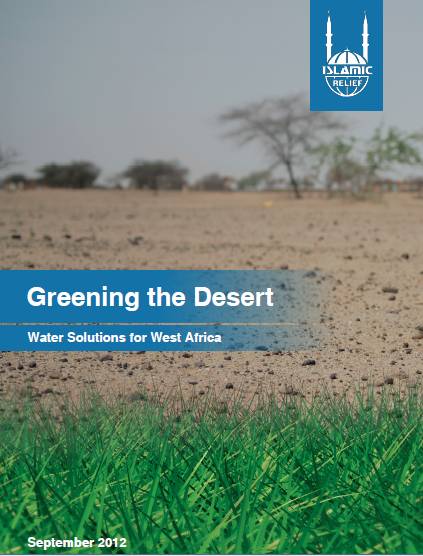
Throughout West Africa, the impact of climate change has been strongly felt over the last 40 years, with increased desertification, cyclical droughts and flooding. As a result, the people of West Africa are suffering from repeated outbreaks of diseases, persistent malnutrition and currently one of the worst cases of food insecurity in the world.
Islamic Relief has always aimed to be effective in alleviating poverty. This can only be achieved if disasters such as droughts and floods are controlled and mitigated.
Islamic Relief believes that much poverty is linked to problems with water. With effective provision of water, communities can get cleaner water and through this they can attain a better diet, improved income generation, better health care, education and much more.
In the past, aid agencies have focused on what they thought was appropriate for the people of Africa to deal with climate change adaptation. This included water provision methods such as boreholes and planting trees to combat environmental degradation. In the main, however, many such measures have failed to make a positive impact in the long term. Some, like boreholes, have in places actually contributed towards over-grazing and increased land degradation.
Office
http://policy.islamic-relief.com/
Citation
Fon. E and Patel.R. (2012). Greening The Desert Water Solutions for West Africa . Islamic Relief Worldwide, Birmingham, [Online] Available http://policy.islamic-relief.com/wp-content/uploads/2014/05/Greening-the-Desert.pdf





